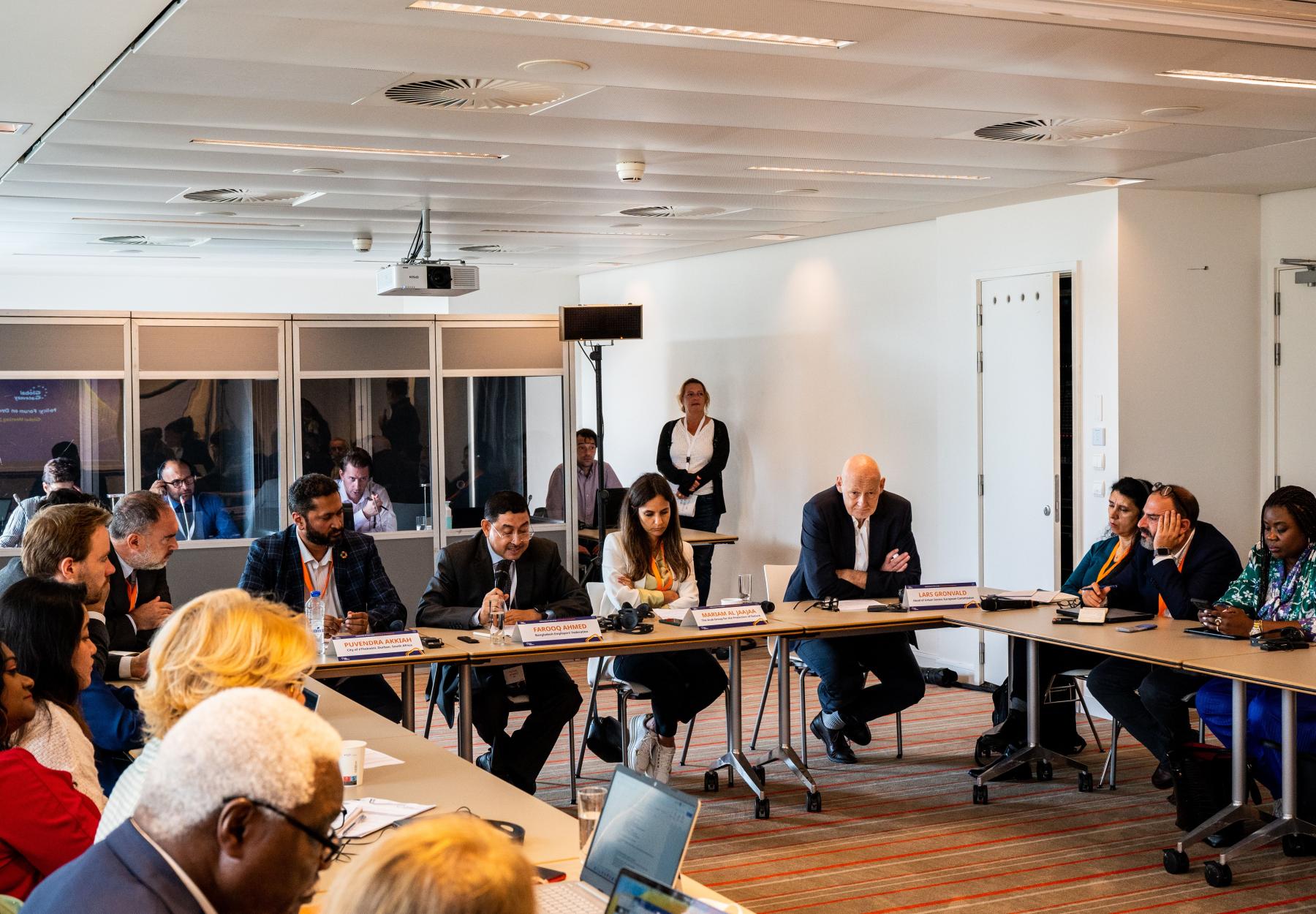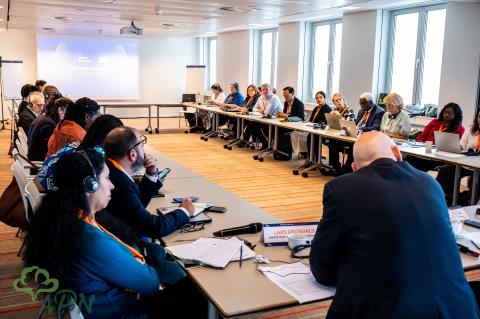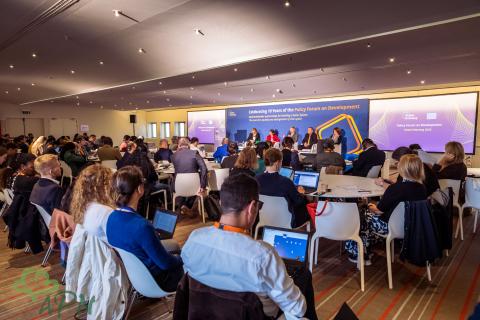
APN | Brussels
28 September 2023
APN General Manager, Mariam Al Jaajaa, participated as a speaker in a panel discussion entitled " Driving change and building partnership in the urban context”, at a meeting organized by the European Union's Policy Forum on Development.
During the meeting, Al Jaajaa presented an unorthodox perspective on “urbanization”. She pointed out that platforms often embrace trendy concepts superficially while overlooking crucial priorities. The Arab world is currently one of the fastest urbanizing regions globally, with two-thirds of the population living in urban areas, which is driven by two primary factors. Firstly, our region has been a victim of a series of international proxy conflicts and occupations, resulting in an enormous number of refugees, with 85% of them settling in urban areas.
The second reason is the marginalization of the rural sector, which began in the 1980s and was instigated by international financial institutions like the IMF and the World Bank. Their policies drove the cuts in public expenditures on agriculture and the elimination of subsidies and protection of farmers in the Arab world and the broader Global South.
She also highlighted the effects of abolishing the cap on the size of land holdings, and removing the price ceiling of land, especially after land was commodified and valued according to its exchange rather than its production value. As a result, farming has become an uncompetitive form of land use in terms of immediate profit. This hindered small-scale farmers from accessing land and has contributed to the Arab region experiencing one of the highest levels of land inequality globally.
Al Jaajaa clarified that urbanization affects food security on the one hand, and exacerbates conflicts on the other, with many of these conflicts involving individuals who lack formal land ownership documents. This situation can be traced back to the dismantling and privatization of collective and traditional land rights during the colonial era, and the issue continues to persist as a complex problem to this day.
In her recommendations, Al Jaajaa called for support for local food systems, warning of conditions for donors, including the European Union, to avoid planting nonproductive trees with no socio-economic value in the context of programs to combat climate change, and against planting trees as greenwashing, such as Israel's policy of greening the Negev desert, which consumes water stolen from Palestinians and leaves them thirsty.
In her recommendations, Al Jaajaa called for supporting local food systems. She also cautioned of the conditions placed by donors, including the European Union, against the cultivation of productive trees with socio-economic value within climate change mitigation programmes. She further discouraged the use of tree planting as a form of greenwashing, citing Israel's policy of afforesting the Negeb desert as an example. This policy involves using water stolen from Palestinians, leaving them with limited access to water resources and facing water scarcity.
In response to some questions, Al Jaajaa criticized the European Union's role in formulating the Triple Nexus policy, which focuses on the interconnectedness of humanitarian, development, and peace dimensions, but never applied it. She used the example of Syria as an illustration. In Syria, humanitarian aid is provided, but there is a lack of support for repairing the water infrastructure that has been damaged during the conflict. She raised the question of whether this policy ultimately penalizes the Syrian government or the Syrian population.

